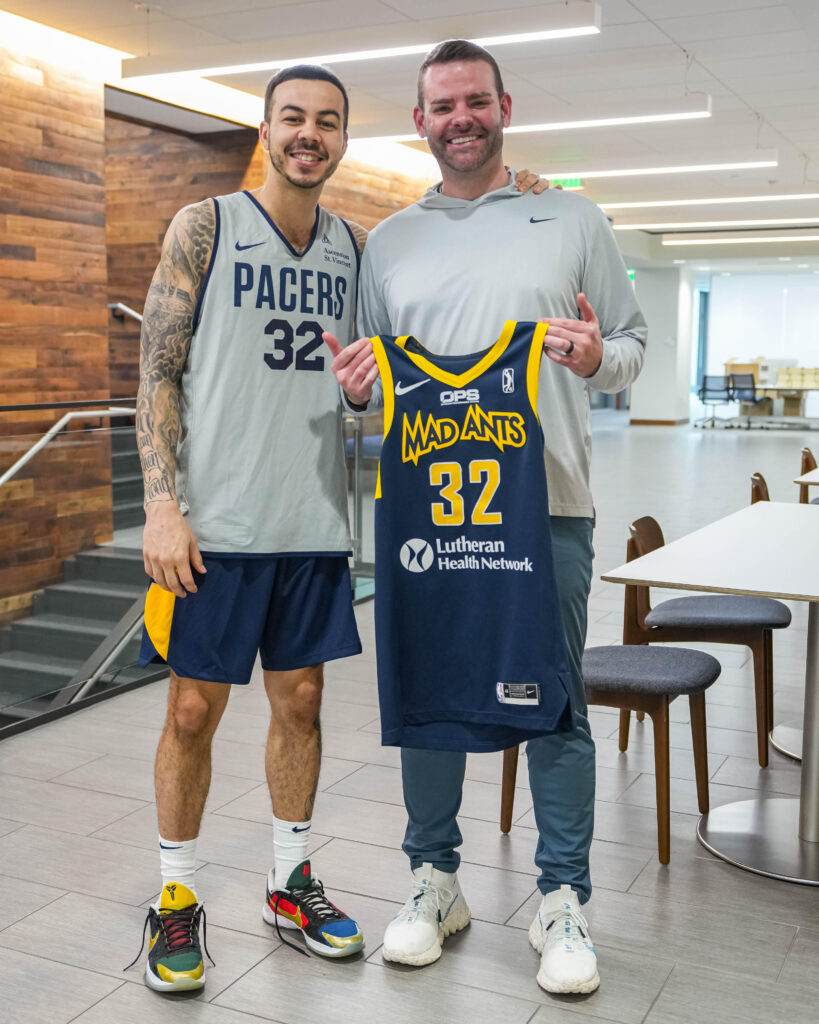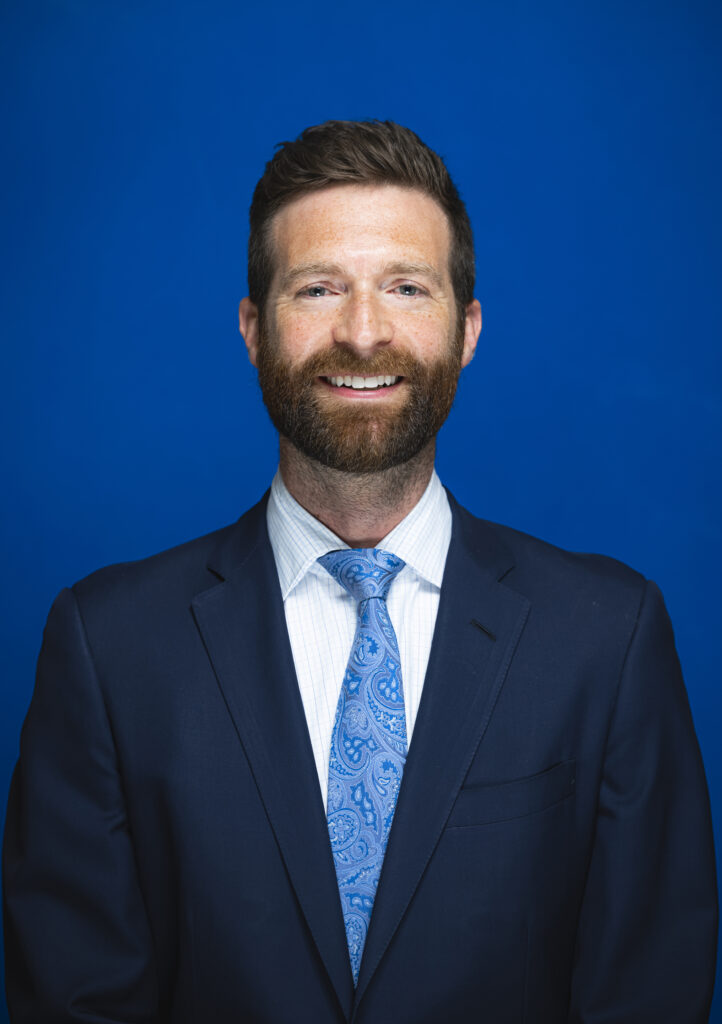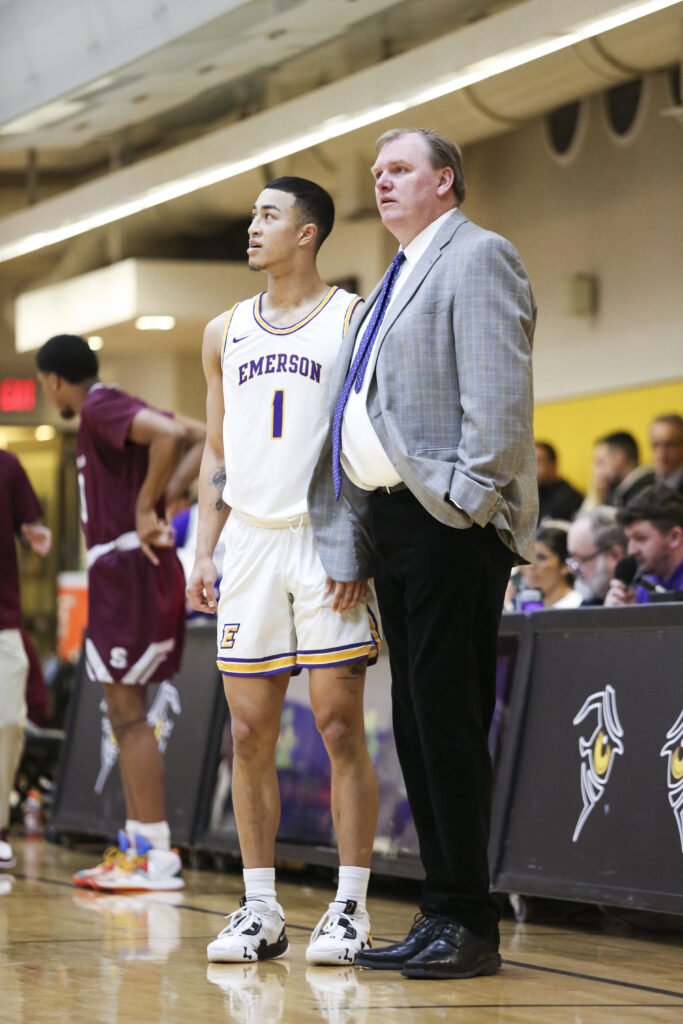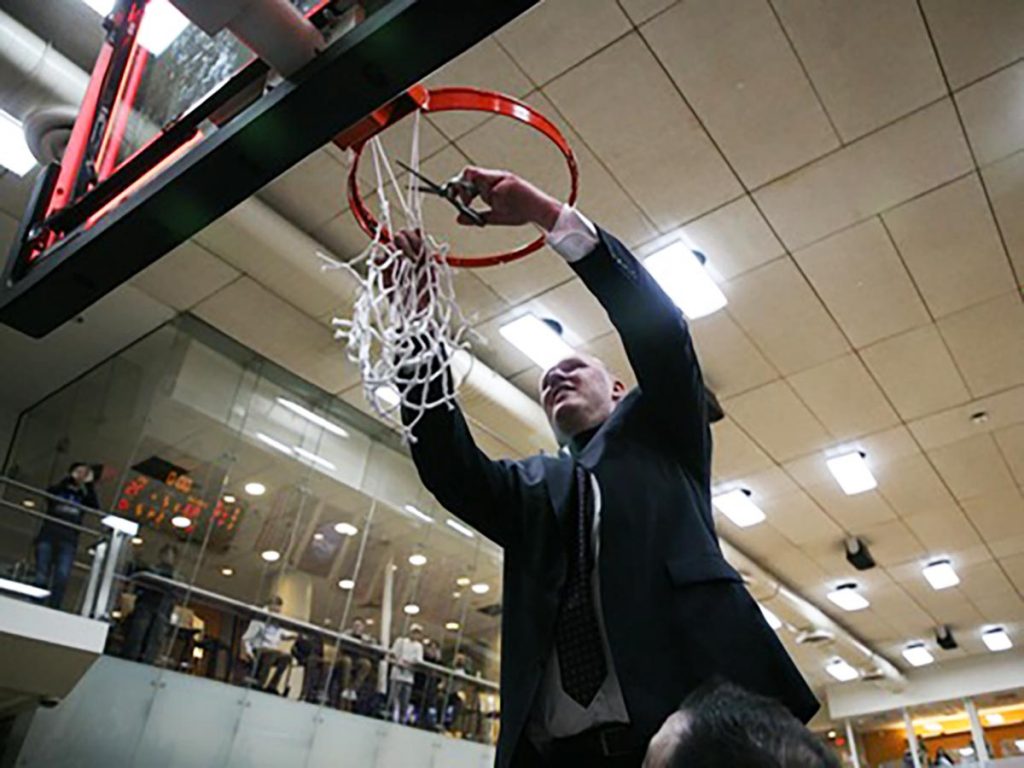How to Tell Pro Athletes They’re Traded, Released, or Being Called Up

As general manager of the Fort Wayne (Ind.) Mad Ants, Chris Taylor ’11 changes lives. He gets to tell players they’re being called up to an NBA team.
“It’s the most rewarding and cool part of my job, when [I’m] able to tell these guys that everything they’ve worked for has led to being called up to an NBA team,” said Taylor. “They’ve played overseas, maybe in an NBA training camp. The carrot is dangling so close, and when you get a chance to tell them – even for a 10-day contract – it’s an emotional experience, even for us.”
The Mad Ants are the Indiana Pacers’ G (minor) League affiliate. Depending on their contract status, G League players can be signed by any team in the NBA, not just their current affiliate team.
“Usually, you call the player’s agent. Some agents want to be the one who tells them, [but] almost 100 percent of the time, the agent says it’s O.K. for me to tell them,” Taylor said. “We get the social media team so everyone can enjoy the moment and we capture it for the player. Sometimes it’s a phone call, sometimes it’s in person. On the road, I go to their hotel room. I’ve woken guys up in the middle of the night in their pajamas with a camera crew, they’re like a deer in headlights.”

Whether you’re telling the player they’re going to the NBA, or you’re breaking it to them that they’re being released, once you deliver the news, it doesn’t really matter what you say, said Taylor.
“I say, ‘I’ll tell you about travel details in a minute, but call your family, call your agent, and pack your stuff because you’ve got to go quickly,’” said Taylor.
The most vital part of informing a player of good news or bad news, is professional communication, said Rob Hennigan ’04, Vice President of Basketball Operations for the Oklahoma City Thunder.
“The most important thing is to be proactive, transparent, and as honest as possible,” Hennigan said.
No One Right Way to Do It
Hennigan said telling a player they’re being traded may be welcome news, because some players want to play for a different team.
“Typically, you tell the player’s agent and the player at the same time, or simultaneously,” said Hennigan.

Based on his experience in his current job, and previous role as General Manager for the Orlando Magic, Hennigan said it’s becoming increasingly more difficult to keep information out of the public sphere due to the velocity of social media.
He said there isn’t a template to inform a player of a big change. That conversation can go a number of ways, depending on their career arc and whether they’re receptive to feedback.
“The tone of the dialogue is all relative to parties involved in the transaction,” said Hennigan. “In my experience, players are very professional when learning they’ve been traded or released. You’re aware of the volatility of the profession. Anyone working in the industry has a baseline of that. There’s not a ton of emotion. … It’s the epitome of professionalism.”
Curley Gives It Straight

Emerson Men’s Basketball Head Coach Bill Curley knows what it’s like to be traded. He played for five teams during a seven-year NBA career.
“I’ve been through the gamut. The first trade, they never really said anything to me. Then I got traded to Detroit. I didn’t get much info on either side,” said Curley.
But when Curley was traded to the Minnesota Timberwolves, he got the news from one of his boyhood favorites.
“[Hall of Famer and former Boston Celtics great] Kevin McHale called me. That was pretty cool, being a Celtics fan,” said Curley.
Curley played for Minnesota for three years. Going into the final year of his contract, he thought the Timberwolves would re-sign him.
“We were in Oakland, and I was ready to go out for lunch with [team captain] Sam Mitchell before the game after shootaround,” Curley said. “[Mitchell] said, ‘They want to see you upstairs.’ [Former Timberwolves Head Coach] Flip Saunders brought me up to the suite and said they’re going to trade me.”
Curley was being included in a blockbuster deal headlined by Stephon Marbury.
“They said, ‘We don’t want to do it. We like how you’re playing and want to keep you here,’” recalled Curley. “But they had to make the numbers work with contracts.”
Curley feels the Timberwolves were very upfront with him, but that every organization is different in terms of how they convey their thought processes about individual players.

“I was with [the Golden State Warriors] and we had just gone cross-country and were on the East Coast. We played Washington, drove up to Philly to play them on Tuesday,” said Curley. “I go to shootaround and they told me they’re going to cut me.”
Curley didn’t like that he had to fly back to California to get his stuff, then fly back home to Boston to be with his family. But he understands why he wasn’t told he’d be released while in California. There is the possibility that a player may stop trying and become a distraction to other players.
“Three days later, I was picked up by Houston and flew back to play a game in Oakland after being back in Boston.”
Curley said the role of the player is to play as hard as possible in every game, whether you’re starting or waiting on the end of the bench.
“You have to accept that [professional basketball] is a business. They’re going to do things for reasons,” said Curley. “If you’re traded, take it out on the team that traded you. Say to yourself, ‘I can’t wait until we play you.’”
Categories